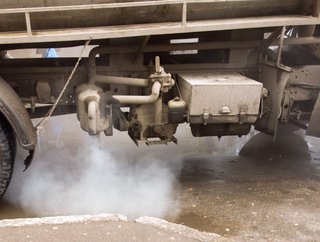World-leading technology to reduce harmful diesel emissions

In an industry-first innovation, Loughborough University has developed technology that has the potential to significantly reduce nitrogen oxide emissions in diesel engines.
There has been growing pressure on the automotive industry to rectify the diesel pollution situation. In 2015, the UK government estimated that NOx exposure from diesel engine emissions led to around 52,000 additional deaths in the nation, and it is also the main cause of smog in major cities.
European NOx reduction targets for on-highway and heavy-duty diesel vehicles are so low that they are almost impossible to adhere to, but new Ammonia Creation and Conversion Technology (ACCT) created by Loughborough University’s School of Mechanical, Electrical and Manufacturing Engineering effectively increases the capacity of existing on-engine after-treatment systems.
Currently, most diesel vehicles include a system which tries to remove the NOx produced by combustion, called a Selective Catalytic Reduction (SCR) system. It uses AdBlue to safely provide the ammonia required to transform NOx into nitrogen and water, but AdBlue only works are very high exhaust temperatures which is limiting.
ACCT, however, uses waste energy to modify AdBlue enabling it to work effectively at lower temperatures. This hugely extends its temperature range, meaning SCR systems can significantly enhance existing NOx reduction systems. ACCT is the first of its kind in the world.
Loughborough’s Professor Graham Hargrave, an internationally acclaimed expert on the optimisation of combustion engines, developed the technology with Research Associate Jonathan Wilson.
“We are all familiar with the ‘cold start’, where diesel vehicles spew out plumes of toxic emissions before their catalytic systems are up to temperature and able to work effectively,” he explains.
“Unfortunately with many vehicles doing short stop/start journeys, such as buses and construction vehicles, many engines never reach the optimal temperature required for the SCR systems to operate efficiently. The result is excessive NOx being released into the urban environment, especially in large cities.
“Our system enables the SCR systems to work at much lower temperatures – as low as 60oC. This means that the NOx reduction system remains active through the whole real world driving cycle, leading to significant reductions in tailpipe emissions.”
Currently the Loughborough technology has been tailored for HGV’s, but the same system is fully scalable for use in all diesel vehicles.
“No viable alternative to the diesel engine currently exists for the heavy duty market and is going to be in use for many more years,” added student Jonathan Wilson. “Systems are needed now that tackle NOx emissions, to help reduce the number of air pollution related deaths and enable vehicle manufactures to meet the ever reducing emissions targets set by the Government. ACCT is the answer.”
The Energy Technology Institute's (ETI) Chief Technology Officer for Heavy Duty Vehicles, Chris Thorne said: “Based upon a brief review, the ACCT technology recently developed by Loughborough has the potential to viably produce gaseous ammonia at temperatures significantly below 190 degrees C, thus enabling increased conversion efficiency and lower NOx emissions.
“It is likely that emissions legislation will become even tighter and vehicle manufacturers will need to develop technologies to address this, and it is our belief that the ACCT technology should be further developed as it could help address this challenge in the real world.”






